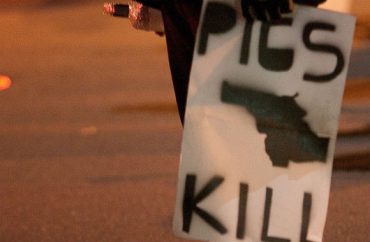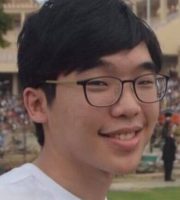
“I would much rather my own children interact with drugs than with the police.”
That statement comes from Columbia University Professor Carl Hart in a recent Washington Post op-ed that he penned arguing “the killing of black people by the police has been on a regular schedule.”
Psychology Professor Hart writes that drug effects are “predictable,” but encounters with police “often” end with dead black people.
Dr. Hart, the first black professor tenured in the natural sciences at Columbia University, teaches a psychology course titled “Drugs and Behavior,” and is known for his research in narcotics and drug addiction – both from a scholarly angle as well as personal experience.
“I speak candidly about my past and who I am,” Hart writes in the op-ed. “In fact, ‘High Price,’ my science memoir, is one of the required readings for [my] course. In it, I detail my imperfections and past drug use and sales. I also lay out a blueprint for how one can succeed as a scientist and academic in a world that despises one’s people.”
 Indeed, Dr. Hart – according to his opinion piece – believes America is a “white-controlled world,” calling it a “wretched reality.” He writes that victims of police shootings have their reputations “dragged through the mud” and that police are rarely held accountable, and with that every black American is essentially told “your life is worthless compared with a white person’s.”
Indeed, Dr. Hart – according to his opinion piece – believes America is a “white-controlled world,” calling it a “wretched reality.” He writes that victims of police shootings have their reputations “dragged through the mud” and that police are rarely held accountable, and with that every black American is essentially told “your life is worthless compared with a white person’s.”
He goes on to describe how, as part of his research over two-plus decades, he has given thousands of doses of drugs, including crack cocaine, marijuana and methamphetamine, to research participants.
“By the way, I have never seen a research participant become violent or aggressive while under the influence of any drug (at doses typically used recreationally), as police narratives frequently claim,” Hart argues in the Post. “My research has taught me many important lessons, but perhaps none more important than this — drug effects, like semesters, are predictable; police interactions with black people are not. In encounters with police, too often the black person ends up dead. That is why I would much rather my own children interact with drugs than with the police.”
Hart declined an interview request from The College Fix to speak further on the matter.
Dr. Hart is no stranger to speaking boldly. In his “High Price” memoir, he “recalls his journey of self-discovery, how he escaped a life of crime and drugs and avoided becoming one of the crack addicts he now studies,” according to its online description.
He also serves as a role model for some students.
Zach Wood, a student in Hart’s class, told The College Fix that the professor “exemplifies a paradigmatic intellectual pursuit of truth,” adding that the scholar consistently encourages his students to question, interrogate, challenge, and critically evaluate the knowledge they receive, “even when it comes from him.”
The course delves into the use of some recreational drugs, and Hart explains the difference between legalization and decriminalization, Wood said.
“Basically unlike legalization, decriminalization means that an activity is still illegal and thus justifiably discouraged, yet the penalties for breaking that law are not as severe,” Wood said. “So one means it’s legal to use marijuana. The other means it’s illegal but you won’t end up in prison for years because of possessing an ounce of it. Instead, you may pay a fine or face a civil charge.”
“In class, when a student disagrees and appears unconvinced of something he says, he doesn’t gloss over their objection,” Wood added. “He asks them to explain their thoughts, he listens carefully, and then he responds, and will modify his statement to clarify his point. I wish more of my professors did that.”
Nevertheless, some students have expressed concern over what they contend is his tendency to push an agenda.
According to CULPA (a website for anonymous student reviews of Columbia professors), several students expressed that Hart would expound propaganda in his course, “Drugs and Behavior.”
“I was slightly disappointed by the one sided opinions against drug policies and regulation that Hart emphasized,” one student writes. “Even the TAs commented at points in their exam reviews that what Hart was looking for is for the students to agree with his opinions in their exam essays.”
Another anonymous student review explained that negative studies of certain drugs were overly scrutinized while positive studies were given a pass: “I felt like I was being fed propaganda. And I had nowhere else to turn, since Prof. Hart also wrote the textbook.”
In 2014, Hart told Democracy Now, when asked what he says to young people about drugs and alcohol, that “I think of these things just like I do any other potentially dangerous behavior, like driving an automobile.”
“I make sure that I educate my kids on how to be safe in driving their car, how to be safe when they have sex. The same is true with drugs,” he said. “I make sure I let them understand the potential positive effects, the potential negative effects, and how to avoid the potential negative effects.”
Like The College Fix on Facebook / Follow us on Twitter
IMAGE: Thomas Hawk / Flickr
Like The College Fix on Facebook / Follow us on Twitter






Please join the conversation about our stories on Facebook, Twitter, Instagram, Reddit, MeWe, Rumble, Gab, Minds and Gettr.